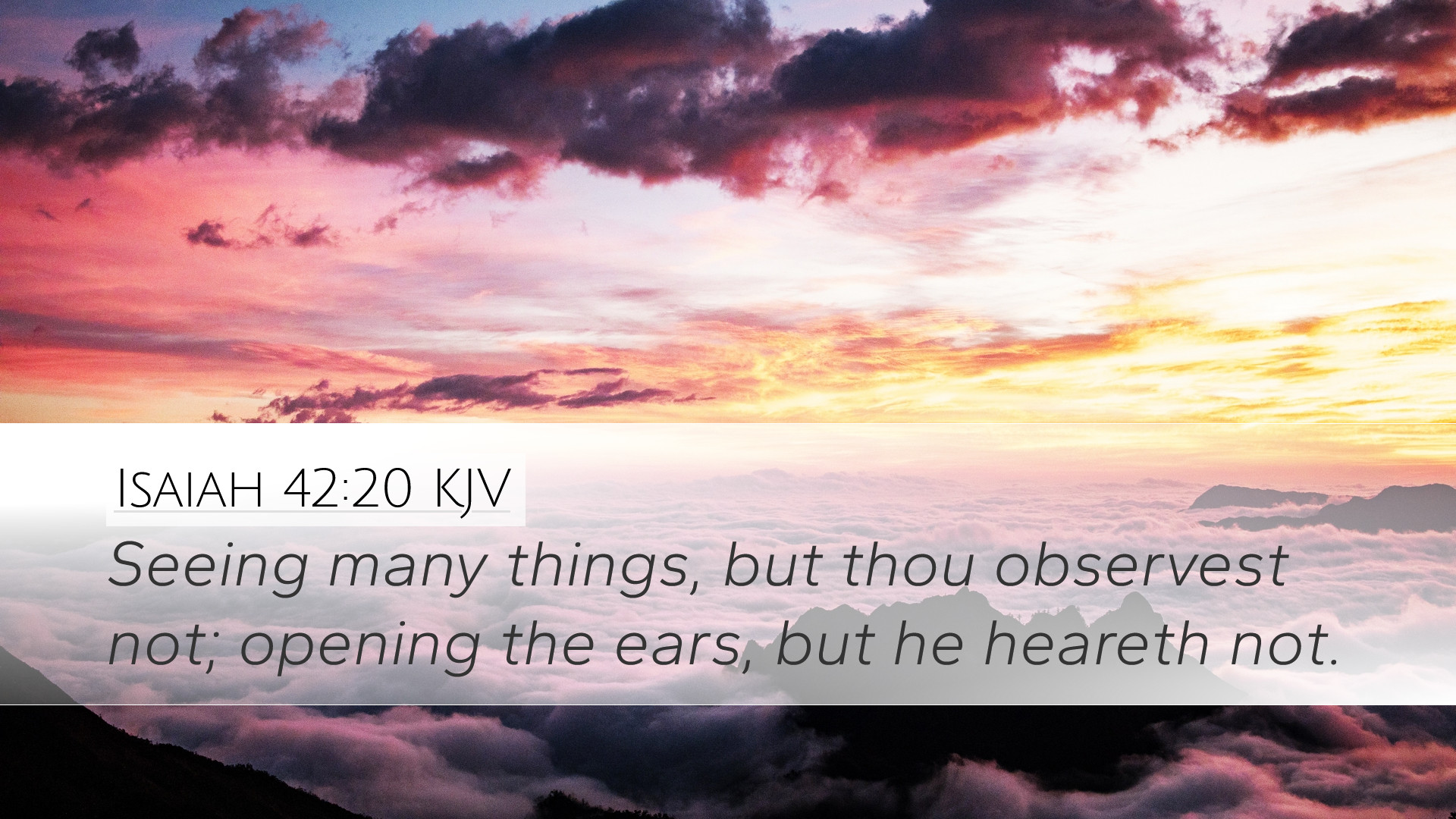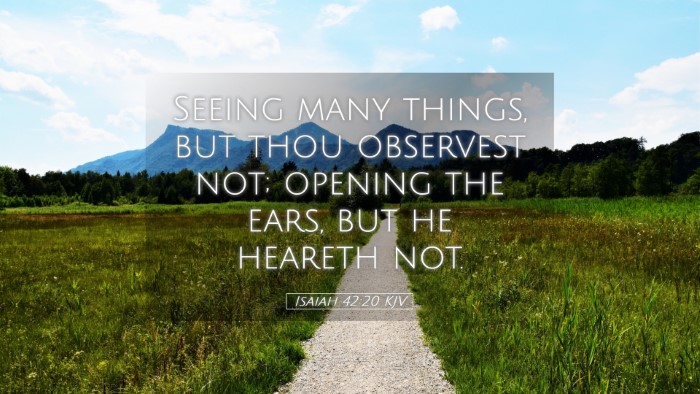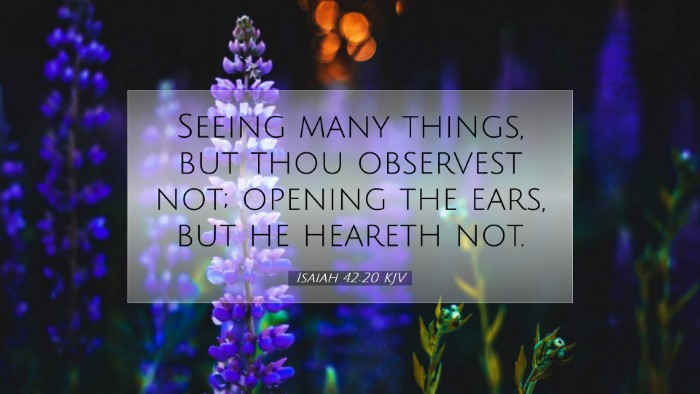Commentary on Isaiah 42:20
Verse Text: "Seeing many things, but thou observest not; opening the ears, but he heareth not."
Introduction
Isaiah 42:20 presents a sobering indictment of the spiritual blindness and deafness prevalent among God’s people. The prophet Isaiah, an instrument of the Lord, communicates a profound message that reverberates through the ages, calling attention to the consequences of ignoring divine truths. This commentary synthesizes insights from Matthew Henry, Albert Barnes, and Adam Clarke, providing a rich tapestry of understanding for pastors, students, theologians, and Bible scholars.
Contextual Background
The book of Isaiah is renowned for its dual themes of judgment and hope. Chapter 42 is situated within a section that introduces the Servant of the Lord, highlighting God's commitment to justice and righteousness. This verse emerges amid a broader discussion about the failures of Israel to respond adequately to God’s revelations. Isaiah, therefore, serves both as a warning and a promise, delineating the stark contrast between humanity's shortcomings and God's unwavering faithfulness.
Verse Analysis
Seeing and Not Observing
Matthew Henry's Insight: Henry emphasizes the irony in the ability to see “many things” yet failing to comprehend its significance. This reflects a broader spiritual malaise where individuals are witnesses to numerous acts of divine grace and intervention but lack the insight to recognize God’s hand at work. He observes that this spiritual dullness is a form of judgment from God; a people who refuse to heed His voice may find themselves increasingly desensitized.
Albert Barnes' Commentary: Barnes comments that this passage underscores a tragic reality: people can behold God’s creation, his mercies, and his providential workings but still remain indifferent. Spiritual blindness is often linked to pride and self-sufficiency. This inability to see underlines the urgent need for divine illumination, a theme woven throughout the Scriptures.
Opening Ears but Not Hearing
Adam Clarke's Reflection: Clarke highlights the phrase "opening the ears, but he heareth not" to illustrate the futility of human distraction. He suggests that while one may have the physical ability to hear, the deeper auditory engagement with God’s truth requires a heart that is receptive. This disconnect is attributed to sin, which hardens the heart and dims spiritual perception.
Theological Implications
The implications of Isaiah 42:20 are profound, particularly in a theological context. The passage challenges modern readers to reflect on their spiritual acuity. Are believers today also guilty of seeing God’s work but failing to respond? This spiritual apathy can have grave consequences for communal and individual faith.
- Human Responsibility: The recognition of divine signs and portents demands a response. Spiritual awareness obligates believers to act in faith.
- Judgment and Mercy: The dual themes of the judgment of Israel and God's ultimate mercy encapsulate God’s desire for an authentic relationship with His creation.
- The Role of the Servant: Christ fulfills the Servant's role, embodying perfect obedience and responsiveness to God, and invites humanity to partake in this relational dynamic.
Practical Applications
The truths encapsulated in Isaiah 42:20 resonate with contemporary challenges faced by the church. The modern believer must consider how they actively engage with God’s revelations.
- Encouragement to Reflect: Believers are urged to regularly engage in self-examination—are they truly perceiving God at work in their lives?
- Awakening to the Word: A commitment to the study of Scripture can enhance spiritual sight and sound, leading to a deeper understanding and appreciation of God’s will.
- Community Engagement: The church must collectively hold each other accountable to be observers and listeners of God's calling, nurturing a culture that values spiritual awareness.
Conclusion
Isaiah 42:20 stands as a timeless reminder of humanity's propensity to overlook God’s speaking and working in the world. The insights of Henry, Barnes, and Clarke invite scholars and practitioners alike to engage earnestly with the challenge posed in this verse. Response to God’s revelations is not only a personal endeavor but a communal imperative, prompting a reckoning of spiritual awareness that demands attention and action. As we strive to align with the divine purpose, may we seek to not only see but to truly observe; not merely to open our ears, but to listen and act upon what we hear.


